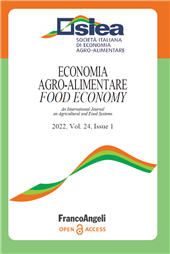Short-Term Impact of a Zero Concentrate Supplementation on Organic Dairy Production
1-17 p.
This study investigates the shortterm economic impact of a zeroconcentrate supplementation in organic dairy production systems with Holstein cows. Based on experimental data and using prices recorded in 2018 in Switzerland, the study calculates the difference in profits between two annual herbagebased feed rations: one supplemented with 750 kg and the other containing 0 kg concentrates per cow and lactation. The cut in concentrates led to a considerable increase in the average culling rate (14.4 percentage points). If it is assumed that the culling rate cannot be lowered by means of breeding or management adjustments, a zeroconcentrate supplementation leads to a 375 CHF drop in profit per cow and year, which is equivalent to a 14% decrease in the remuneration of labor input.
If the culling rate could be decreased to the status quo, then not feeding concentrates leads to a smaller, nonsignificant decrease in profits of 141 CHF per cow and year. Overall, it is concluded that there is a shortterm tradeoff between profitability and a reduction in concentrates. A zeroconcentrate supplementation would be economically feasible only if the culling rate can be kept under control, for instance, by using adapted cow breeds. However, highquality roughage is a prerequisite and may be more difficult to produce in alpine regions with less favorable production conditions. [Publisher's text].
Ist Teil von
Economia agro-alimentare : XXIV, 1, 2022-
Artikel aus derselben Ausgabe (einzeln erhältlich)
-
Informationen
ISSN: 1972-4802
THEMENBEREICHE
KEYWORDS
- Organic Farming, Dairy Farming, Zero Concentrate Supplementation, LowInput Strategy


